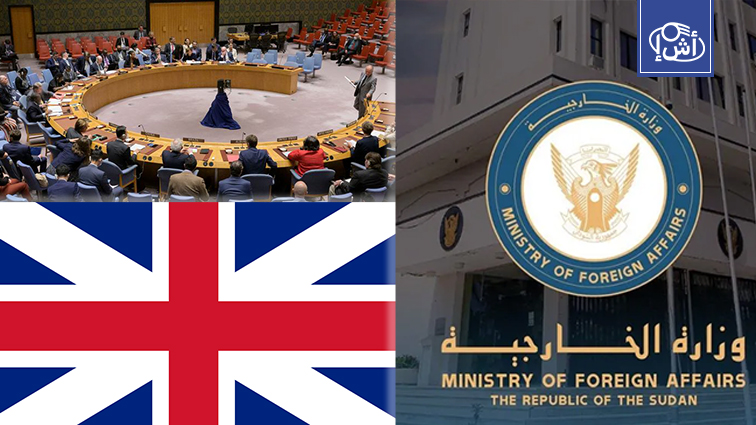The Sudanese Foreign Ministry accused Britain of changing the format and nature of the closed consultations session held by the UN Security Council on Sudan last Monday.
The ministry said in a statement that “the session discussed the general Sudanese situation, after it was dedicated to discussing Sudan’s complaint against the UAE.”
The ministry expressed its dismay at this shift, noting that Britain ignored its moral and political role as a permanent member of the council, “and by virtue of its colonial past in Sudan, whose innocuous effects continue, in exchange for its commercial interests with the UAE.”
The ministry continued: “Britain’s protection of the largest financier of war in Sudan, coupled with the revelations in the British press that the British government held secret meetings with the Rapid Support Militia, makes it a partner in responsibility for the atrocities committed by the terrorist militia and its sponsor.”
The ministry explained that what happened in the session “coincided with what was revealed by the British newspaper (Sunday Times) on April 28, 2024, that the UAE is exerting severe pressure on Britain to protect it in the Security Council, after exposing its role in fueling the war in Sudan with its continuous support for the terrorist Rapid Support Militia.”
The ministry added: “The members called for the resumption of the Jeddah negotiations in Saudi Arabia, and the need to facilitate unhindered humanitarian access, and respect for international humanitarian law, without the meeting coming out with decisions, and only the statement issued on April 27.”
Sudan’s representative to the United Nations sent a letter to the President of the Security Council on April 26, calling for an urgent meeting of the Security Council to discuss Sudan’s complaint against the UAE.
For its part, the UAE rejected allegations of fueling the conflict in Sudan, stressing its commitment to supporting a peaceful resolution of the conflict and achieving national consensus in the country.
Statistics reveal the toll of civilian casualties in Sudan and South Sudan
